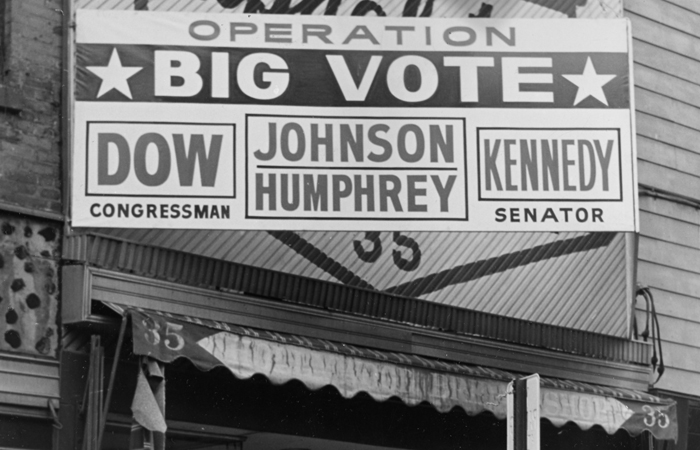Norman Studer was an educator and administrator at the Little Red School House and Elisabeth Irwin High School from the early 1930s until 1951. There is a relatively insignificant amount of material related to Studer's teaching activities, with the exception of a folder entitled "Slavery and the Negro Problem." The folder contains notes, bibliographies, and analyses of an educational unit Studer developed addressing the historical and cultural position of the "American Negro" in the late 1930s and early 1940s. The material documents Studer's early interest in the concept of American democracy and interracial relations, as well as his collaborative approach to the subject, which includes portions of student interviews revealing their attitudes toward African Americans, the Civil War and slavery. Also of interest is the folder entitled Our Voice, containing several copies of a student run publication featuring articles, prose, drama, poetry, and opinions of students at the Little Red School House.
Collections : [New York State Modern Political Archive]
New York State Modern Political Archive
Elected officials, interest groups, and activists from New York State.
Search Constraints
Start Over You searched for: Collecting Area New York State Modern Political Archive Remove constraint Collecting Area: New York State Modern Political Archive Level Series Remove constraint Level: SeriesSearch Results
This series includes a copy of the "Report of the President's Task Force on Government Reorganization" (Nov.1964) which recommended a cabinet level Department of Education; documents by former Secretary of HEW, Marion Folsom, opposing a separate Department; materials dealing with Miles' association with the American Council on Education and lobbying efforts on Jimmy Carter regarding this issue; Miles' testimony before Congress; correspondence with Shirley Hufstedler, the first Secretary of the Department of Education; Miles' articles, speeches etc. on this subject. Copies of and materials related to his studies The Department of Health Education and Welfare (1974) and A Cabinet Department of Education (1976) are contained here.
News Clippings, 1934-1987 1 cubic ft.
Extensive clippings fill on BPW members and on the activities of BPW to make its concerns known. Includes some award certificates and a few photographs.
Public Education, 1995-2018 2.07 cubic ft.
This series contains information from media events, partnerships such as Citizens for Midwifery and the Coalition for Improving Maternity Services, PR and marketing materials, and related news articles.
Stenographic Record for the State of New York Department of Environmental Conservation, 1979-1980 4.33 cubic ft.
This series is the transcript of proceedings at public hearings. Page numbering is consecutive for the entire record.
Financial Records, 1913-2003 0.15 cubic ft.
Bound ledgers record the expenses of the club's activities and printing fees. Dues records are kept in the ledgers, along with "fines" before the club ceased the fining system. This series also includes budget proposals for 1990-1993 and the Treasurer's Report of 1994.
Labor Action Coalition of New York, 1977-1985, Undated 0.53 cubic ft.
This series contains records dating from 1977 to 1985. It includes correspondence, newsletters, press releases, news clippings, reports, and speeches.
Medical Papers, 1944-2000 3.6 cubic ft.
This series contains the medical files and publications of Raymond Harris during his tenure in the medical community. Raymond Harris was a cardiologist at St. Peters Hospital in Albany, N.Y. and sat on a variety of committees and boards. Dr. Harris also was on staff at Albany Medical Hospital and the Ann Lee Home. Raymond Harris also worked at a psychiatric hospital and was a consultant on various medical cases. Included in this series are medical publications, documents related to the various hospitals and other institutions where Raymond Harris worked, and correspondence between colleagues. Some files containing patient information are restricted.
This series documents legal activities and relations between the union and telephone company management. Many of these files belonged to Donna Conroy, president, and Kim Young, executive vice president, of Local 1112. This includes agreements and contracts dating from the 1950s to the end of the 20th Century. The bulk of material in the series, however, relates to the 1989 strike, informational picketing, and ongoing mobilization efforts. The union mobilized its members during bargaining in support of new contracts, against office closures, and against robot technologies replacing operators. Although some files mention specific union members, the papers relate to broader union-wide action, such as the 1989 strike. See Series #6: Membership for files on individual union members pursuing their own legal action. The Local 1112 also created several photo albums of union activities such as strikes and informational picketing. The photos were removed from these albums for preservation purposes, placed in archival-quality photo sleeves, and filed within this series where appropriate.
